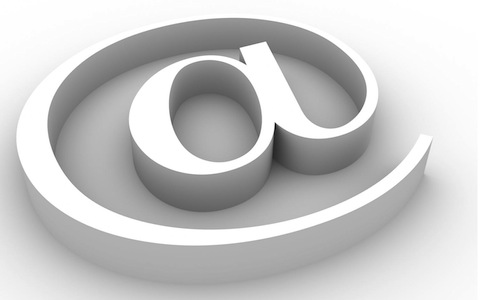Email of Yesteryear
I manage my email vastly different than I used to.
When I worked in corporate America, I would get 150 to 250 emails a day. The first thing I did in the morning was reach for my BlackBerry and check my inbox. I was anchored to that BlackBerry throughout the day, checking it every five or ten minutes, always anticipating every new message. It was an unspoken corporate expectation—to be on call, always available.
And at night, before my head hit the pillow, the last thing I did—out of habit—was check my BlackBerry for new messages. Looking back on it, it seems a bit crazy now, but, at the time, that was the expectation, and thus it felt completely normal.
The truth is that less than 40 of those 150 to 250 emails actually required any kind of action. Some of them just needed to be read and filed away mentally. Others were irrelevant but still required my precious time to read and decide whether or not it was pertinent information.
To manage such a daunting load, I developed an elaborate system to organize the chaos—constantly checking my inbox, filing messages into appropriate “to do” folders, delegating tasks to various employees, and setting priorities for various actions I needed to take. It was a vicious cycle, and I was never “caught-up.” I couldn’t, by definition, ever be caught-up with such a barrage of perpetual incoming info. But I soldiered on—reading, filing, prioritizing, delegating, and taking action to get things done.
Email Today
The picture looks much different for me today.
Size doesn’t matter. I don’t subscribe to the five-sentences email philosophy prescribed by some of my friends. I like long emails if they are clever, well thought out, and add value to my life (that last part is the most important). For some emails, however, five sentences is way too long. And most emails shouldn’t be sent at all. Besides, I’m perfectly capable of writing a two-page 277-word sentence that would render this rule irrelevant (as I demonstrated in the first sentence of the fourth story in Falling While Sitting Down). So, instead of limit myself, I think twice before I send an email. Is there a better way to communicate this info?
Use your smartphone as a tool (if you have one). I still get about the same amount of emails (thanks to the success of this site), and I still have a BlackBerry. But my BlackBerry works for me, not the other way around. It is a tool I use to respond when a computer isn’t nearby (I don’t have internet at home). If I’m writing, I leave it in the other room. If I’m on tour, I use it for short responses while I’m traveling. If I’m spending time with a friend, I leave it in my pocket or, better yet, at home or in my car.
Unsubscribe if you don’t find value. My email is my central hub, it’s what I use to aggregate all of my incoming info (comments, communications, websites, newsletters, blogs, etc.). If something is no longer adding value to my life, I unsubscribe.
Don’t respond to email every day. If you send me an email, you will get a response (if it warrants one), but that response is on my terms, on my timeline. No one should send an email to anyone and expect an immediate reply. Life is too precious to spend our days feeling anxious with required email responses.
Don’t act on everything. Not every email requires an action. In fact, most don’t. Sometimes it’s OK to just hit delete.
Delete nearly everything. I used to archive all of my messages, but now I just delete them when I’m done reading. It’s incredibly freeing. But what if you realize you need something you deleted? Well, I save the few messages I’m certain I’ll want to reference later—I save those messages in a folder and I delete everything else. I have the trash set to keep everything I delete for 30 days before the messages are gone. But, in reality, I’ve learned to let go. If something gets lost, it’s not the end of the world. I’m more concerned about the future than the past.
Question: How could you manage your email differently? Feel free to comment below.
—
Update: Please RSVP for our 33-city tour (just one click—even if it’s a “maybe”).
You can subscribe to this site via email or RSS to receive free essays and updates. Follow me on Twitter, Facebook, and Google+ if you like funny things and random musings.
Please share this essay with others if you found value in it.
Source:

